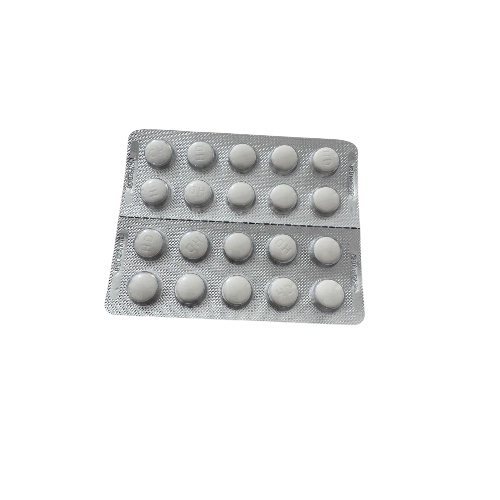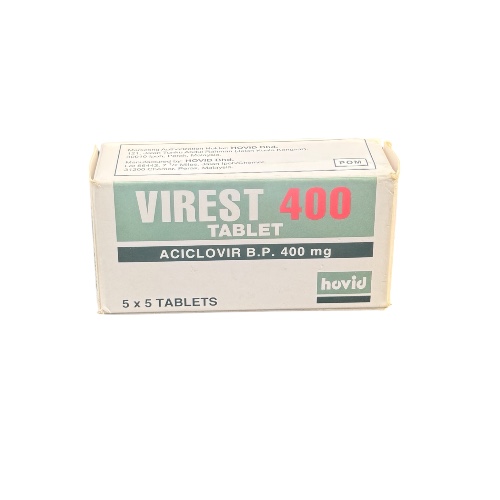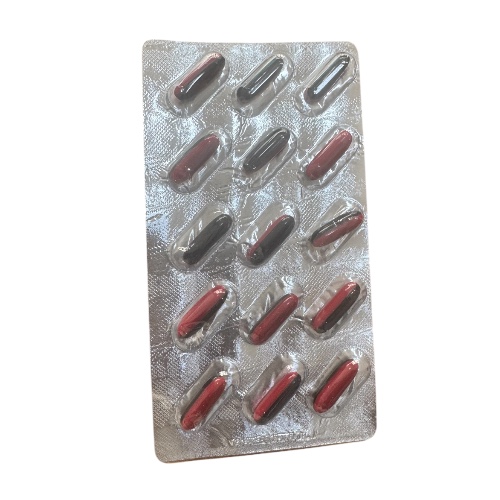Antacids are medicines that counteract (neutralise) the acid in your stomach to relieve indigestion and heartburn. They come as a liquid or chewable tablets and can be bought from pharmacies and shops without a prescription.
Antibiotics are medications used to treat bacterial infections, working by either killing bacteria (bactericidal) or preventing their growth and reproduction (bacteriostatic). They are not effective against viral infections, such as the common cold or flu.
Antihypertensive agents, or medications used to treat high blood pressure (hypertension), work by lowering blood pressure through various mechanisms, including relaxing blood vessels, reducing fluid volume, or blocking hormones that raise blood pressure.
Anti-inflammatory refers to the property of a substance or treatment that reduces inflammation, a natural bodily response to injury or infection, characterized by redness, swelling, and pain.
"Anti-cholesterol" refers to medications and lifestyle changes used to lower cholesterol levels, particularly LDL (bad) cholesterol, to reduce the risk of heart disease and stroke.
Anti-convulsants, also known as anti-seizure medications or anti-epileptic drugs, are medications used to prevent or treat seizures by controlling abnormal electrical activity in the brain

Metformin is a widely used oral antidiabetic drug primarily for the treatment of type 2 diabetes mellitus (T2DM). It belongs to the biguanide class and has multiple functions
A type of drug that helps the blood clot. It prevents the breakdown of a protein called fibrin, which is the main protein in a blood clot.
Antimalarial medications or simply antimalarials are a type of antiparasitic chemical agent often naturally derived, that can be used to treat or to prevent malaria

Antiviral drugs are medications specifically designed to combat viral infections by interfering with the virus's ability to replicate, thereby easing symptoms and shortening the duration of illness
Bronchodilators are medications that relax the muscles around the airways, widening them and making it easier to breathe, particularly for conditions like asthma and COPD.
Contraception, also known as birth control, encompasses methods, devices, or procedures used to prevent pregnancy, offering individuals control over their reproductive health and family planning.
Dermatology is the branch of medicine that deals with the skin, hair, nails, and mucous membranes, encompassing their structure, functions, and diseases, with specialists called dermatologists.
Hormone Replacement Therapy (HRT) is a medical treatment that involves supplementing the body with hormones, typically estrogen and progesterone, to address symptoms caused by hormone deficiencies, most commonly during menopause.

We believe in doing the right thing, from patients overcoming their health challenge to Pharmacists providing a quality product.

A multivitamin is a dietary supplement that contains vitamins, minerals, and other nutrients.
Oral Rehydration Solution (ORS) is a mixture of water, electrolytes (salts), and carbohydrates (sugar), designed to replace fluids and electrolytes lost due to diarrhea or other conditions causing dehydration, and is a primary method for treating dehydration from diarrhea.
Phosphodiesterase 5 (PDE5) inhibitors are medications that relax blood vessels by blocking the enzyme PDE5, which breaks down cGMP, a molecule that helps regulate blood flow. They are commonly used to treat erectile dysfunction and pulmonary hypertension.
Topical chemotherapeutic agents are anti-cancer medications applied directly to the skin, typically in the form of a cream or ointment, to target and destroy cancer cells, particularly for superficial or early skin cancers and precancerous lesions.
Vitamins are substances that our bodies need to develop and function normally. They include vitamins A, C, D, E, and K, choline, and the B vitamins (thiamin, riboflavin, niacin, pantothenic acid, biotin, vitamin B6, vitamin B12, and folate/folic acid)